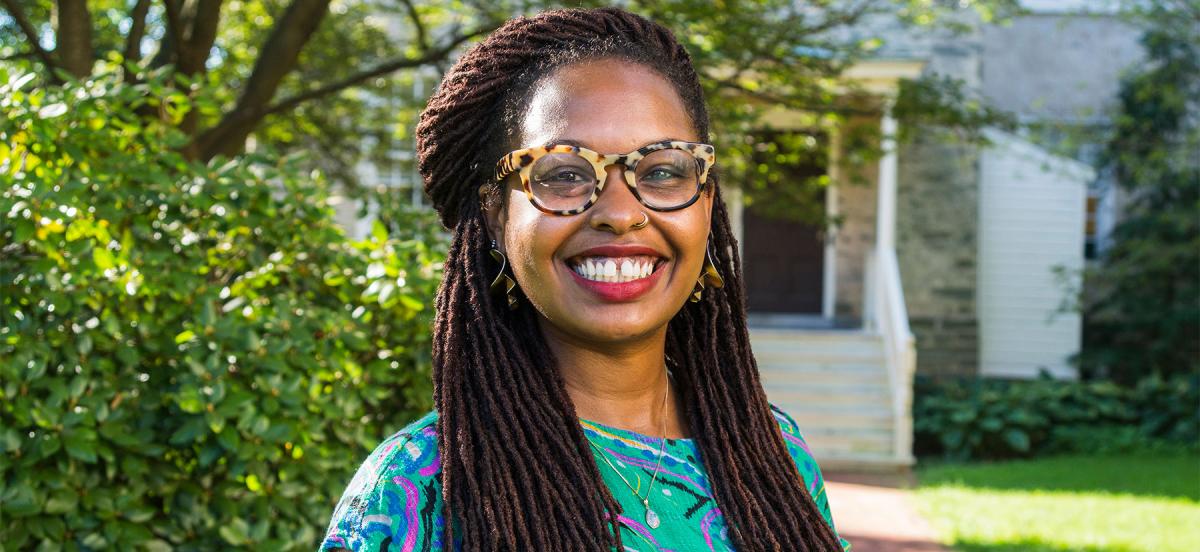Kant and Plato and Locke, Oh My!

Assistant Professor Qrescent Mali Mason is a philosopher and a fan of The Good Place. Photo by Patrick Montero.
Details
Ahead of its series finale, Assistant Professor of Philosophy Qrescent Mali Mason discusses how NBC comedy The Good Place offers lessons in ethics along with the laughs.
Plot Summary: Eleanor Shellstrop (Kristen Bell)— an epically shallow, mean, and selfish young woman— dies and finds herself mistakenly transported to The Good Place. Fearing she’ll be found out and sent to The Bad Place, she enlists newfound friend Chidi Anagonye (William Jackson Harper), who happens to be a moral philosopher, to help her learn how to become a better person. Philosophy classes and mind-bending plot twists ensue.
Here is some of what Mason, a true fan, loves about The Good Place:
It does an excellent job of presenting moral philosophy and ethics to a general audience.
[Clemson University philosopher] Todd May consults for the show. Michael Shur, the show’s creator, was inspired by May to begin thinking about the issue of morality. And one of the grounding texts of the show’s philosophical outlook is a book, a major work, by T.M. Scanlon called What We Owe to Each Other.
The show even got the Trolley Problem right.
Every philosopher who has ever taught ethics has had to teach the Trolley Problem [which wrangles with the question of condemning one person to die in order to save multiple lives]. In the episode, the Trolley Problem is shown, and then they complicate it, and then complicate it some more. That’s the way a professor would teach it in class.
The character of Chidi.
There are very few representations of moral philosophers in the public eye, and especially rare are representations of philosophers of color. So, for the show to feature someone like Chidi, from the African diaspora, and make no explicit mention of his race, that’s something. It shows a representation of a black philosopher in a world where his being a black philosopher is not marked as abnormal. This is important for the public in terms of allowing us to imagine possibilities like this.
Also, Chidi’s lessons on the chalkboard are philosophically and historically accurate. Many major figures in moral philosophy are referenced—Kant, Aristotle, the Existentialists—but they are mentioned in a way that you don’t feel like you are being lectured to. It’s incorporated so seamlessly into the dialogue and the universe of the show.
The show’s themes.
In my own scholarship, I do work on ambiguity, and I really appreciate the way The Good Place shows the moral ambiguity we are always wading through. One of the things they are resolving this season is the idea of a point system—the more good things you do, the more it will add up and you will deserve x, y, or z. But as the characters go along, they realize this doesn’t work. The foundation of our moral lives can’t be quantified in this strict way. It’s something we have to navigate in each situation.
The first season began with the Sartrean, existentialist notion: “Hell is other people.” But the thesis of the show is: That is not the case. We depend on other people, and we grow through other people, and that’s what the characters are learning. All of the characters change. They all have an Achilles heel they are dealing with—whether that’s selfishness, indecision, impulsivity, jealousy. They take a step forward, and they take a step back, and then another step forward. And they can only do that by journeying with each other.



